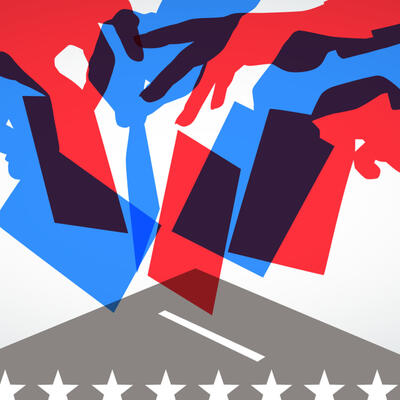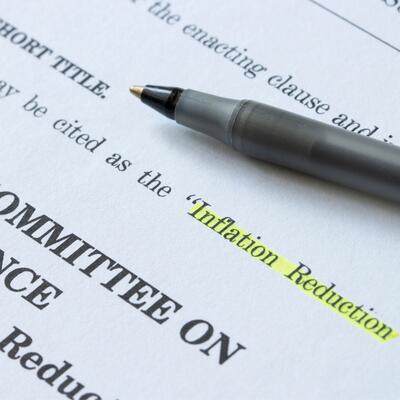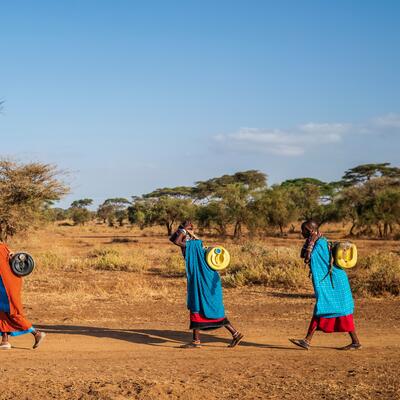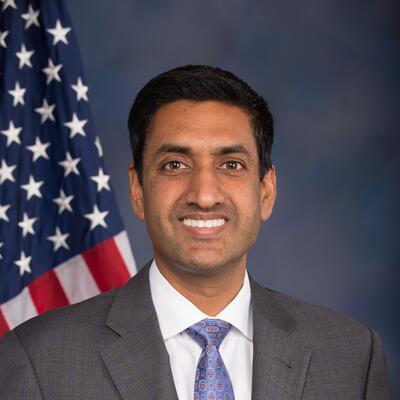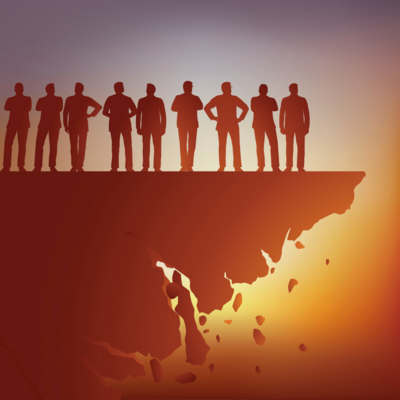
Will Climate Matter in the Election?
Guests
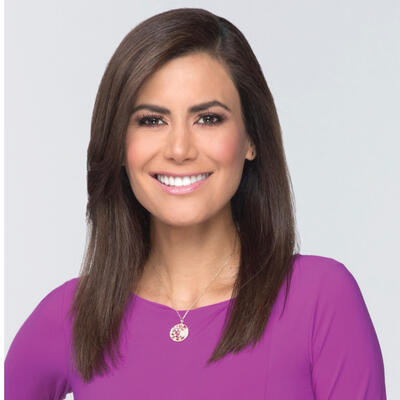
Vanessa Hauc

Nathaniel Stinnett
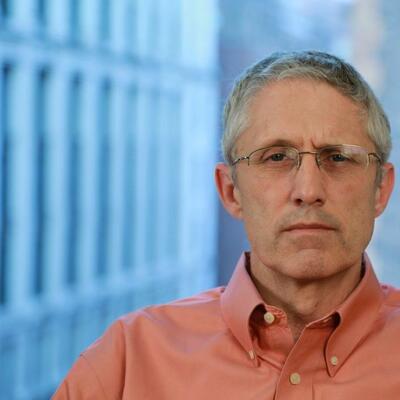
Jeff Nesbit
Summary
With America in turmoil amid protests and a pandemic, is anyone still thinking about climate in this November’s election?
“There is a climate voter right now,” says Jeff Nesbit, Executive Director of Climate Nexus. “Our polls have shown it, lots of other polls have shown it, even now in the middle of this pandemic and what's going on in the streets.”
Nesbit is optimistic that voters who list climate as among their top issues will come out in November. He’s also encouraged by polling in the wake of the pandemic that shows a residual trust in experts that cuts across all party lines.
“There is a real trust in experts because [voters] know that those experts are responsible for saving our lives,” he explains. “That carries over into the climate issue that if we need to be prepared for a pandemic or something right now, well, climate change is just over the horizon we should trust the experts there as well.
A bigger problem may be that no matter how many people claim that climate matters to them in the election, a huge number of them don’t actually vote.
“10.1 million already-registered-to-vote environmentalists stayed home for the 2016 presidential election,” notes Nathaniel Stinnett, Founder and Executive Director of the Environmental Voter Project, an organization dedicated to changing nonvoting environmentalists into voters.
“These people care so deeply about climate and the environment that it's their number one priority,” says Stinnett, “and if we’re able to actually get them out to the polls that can have an enormous impact politically, but also on policymaking.”
Another constituency with a potentially big impact is the Latino community. In 2016 about half of the 27 million eligible Latino voters did not vote. But Vanessa Hauc, a journalist at Telemundo, expects to see significant Latino turnout this fall.
“It has to do with dignity and respect for a community that is here that is working that is giving their best to this country, says Hauc, “and there is not a minimum of respect for what we do.”
Hauc leads the environmental investigation unit at Telemundo and believes Latinos put high priority on climate issues as well. “We have the special relationship with the environment it’s in our DNA,” she says.”[I] try to bring those stories home to my community to make sure that they have the knowledge, the tools, and the information to live a sustainable life.”
Additional interviews:
Antony Leiserowitz, Director, Yale Program on Climate Change Communication
Natasha Kennedy, graphic designer in Seattle
Full Transcript
Greg Dalton: This is Climate One. I’m Greg Dalton. [pause] With America in turmoil amid protests and pandemic, is anyone still thinking about climate in the 2020 election?
Jeff Nesbit: There is a climate voter right now -- our polls have shown it, lots of other polls have shown it, even now in the middle of this pandemic and what's going on in the streets.
Greg Dalton: Other constituencies also remain energized to get out the vote this fall.
Vanessa Hauc: It has to do with dignity and respect for a community that is here that is working that is giving their best to this country. And there is not a minimum of respect for what we do.
Greg Dalton: Climate made big inroads as an issue in the (Democratic) primaries. So what about in November?
Nathaniel Stinett: General elections are really different animals from primaries. I would be shocked if anything, not just climate but any policy argument becomes the core of what this general election is about.
Greg Dalton: Will Climate Matter in the Election? Up next on Climate One.
---
Greg Dalton: How will climate rank as a voting issue in November amid racial strife and a global pandemic? Climate One conversations feature oil companies and environmentalists, Republicans and Democrats, the exciting and the scary aspects of the climate challenge. Underwriting for this episode comes from our friends at the Erol Foundation.
Greg Dalton: No matter how many people claim that climate matters to them in the election, a huge number of them don’t actually vote.
Nathaniel Stinnett: 10.1 million already-registered-to-vote environmentalists stayed home for the 2016 presidential election. 10.1 million!
Greg Dalton: Nathaniel Stinnett [sti-NET] is Founder and Executive Director of the Environmental Voter Project. He’s a veteran campaign operative of races for the U.S. Senate, Congress and other elected offices. Apart from self-proclaimed environmentalists, how important is climate to the electorate overall?
Jeff Nesbit: For the younger Democratic Party voters, it’s either their first, second or third voting issue. For centrist Democratic voters it’s somewhere in the middle of the pack. It's only with right-wing Republican voters that it’s dead last.
Greg Dalton: Jeff Nesbit is Executive Director of Climate Nexus and host of the Climate 2020 podcast. He served as White House spokesman for Vice-President Dan Quayle. Are climate-conscious voters more or less a lock for one party?
Vanessa Hauc: When you talk about Latinos most of our community is Democratic. But I think we relate to issues and to proposals and to people. (9’’)
Greg Dalton: Vanessa Hauc [AWK] is an Emmy award-winning journalist and anchor of Noticias Telemundo Fin De Semana. Earlier this year she was the first climate correspondent to moderate a presidential debate. I began our conversation by asking her how she’s speaking to her audience in this moment of high anxiety.
Vanessa Hauc: Well, you know, for us it’s extremely difficult. I think it’s a tragic moment for everybody not only for the African-American community. What is happening in our country today is tragic for everybody because it’s a reflection of what needs to change in our society. I mean it’s unbelievable that today we have this type of crisis, that somebody can die in the hands of somebody that’s supposed to protect the community. But at the same time I think it’s an opportunity when there is crisis like this like the one that we’re going through today. There is always an opportunity for change. And we are seeing that people are demanding change they are raising their voices they are standing in solidarity with our brothers and sisters from the African-American community. And I’m hopeful that we can create a better society one that is inclusive that is fair that everybody can really thrive and make the best of their lives. So I think we should take this moment as an opportunity.
Greg Dalton: Jeff Nesbit, a lot of organizations sort of the climate sphere are struggling for what to say what to do putting out statements. Climate Nexus put out what I thought was a really strong concise statement. Didn't have platitudes, you know, it had some humility asked some questions. How did you come to that statement and what were you trying to say?
Jeff Nesbit: We've actually we do a newsletter every morning that sort of the media roadmap for hundreds or thousands of journalists who want to cover the climate issue. And we were just as struck by the events as everybody else was. So we decided to dedicate the top of our newsletter to the ongoing coverage whether had anything to do with climate change or not. So we've actually created a brand-new section called first and foremost. So we have a very robust discussion about events that are unfolding in real time in front of all of us before we get to the climate news we felt that that was the most appropriate way to address this.
Greg Dalton: And Nathaniel Stinnett, your thoughts about this moment. You follow elections and the election seems far away,. Your thoughts on this amazing, painful moment we’re in?
Nathaniel Stinnett: Well, it’s obviously much bigger than politics. And I think that's extraordinarily important for all of us to understand. I mean the very premise of structural racism is that it leads into every crevice and corner of society. And this is bigger than tweets it’s bigger than police officers it's bigger than politics. As far as what we're doing as an organization and what I think we need to think more about in the climate movement is not necessarily how we can stop what we’re doing and start talking about racism, but how we can recognize the racism that fuels the climate crisis. Because a lot of it does, a lot of the structural racism that enables the climate crisis enables fossil fuels to dump toxins in the air and the water because believe me they’re not doing it in the lily white suburbs they’re doing it in poor communities of color. And so what we’re trying to do is we’re trying to figure out, okay, recognizing that racism is something that infects all parts of society. What is our position in the climate movement what are the ways that we can talk about this and address it?
Greg Dalton: I’ve been thinking recently about the ubiquity of these two things, you know, racism is everywhere and embedded carbon and energy is everywhere. And so how do we tackle these two things that are seem to be omnipresent and at the same time and connect them they’ve seem been very different. The Yale Program on Climate Change Communication recently surveyed over a 1,000 American adults in an effort to find out how COVID-19 has impacted people's concern about climate. We spoke to the program’s director Anthony Leiserowitz about the study, which was titled Climate Change in the American mind.
[Begin Playback
Anthony Leiserowitz: Despite the context of COVID-19 public opinion about climate change actually hasn't changed. 73% of Americans believe that global warming is happening that is an all-time high. 62% of Americans understand that it's mostly human caused. Again, that's an all-time high. So I think there's a couple key lessons. First of all it is okay to talk about climate change. People can in fact, chew gum and walk at the same time. We can be concerned about coronavirus we can be concerned about the economy. We can also be concerned about an existential crisis that’s just over the horizon that confronts all of us. But it's also important to recognize the context in which these conversations are now happening are radically different today than they were just three months ago. One example is that COVID has really brought to the forefront of people's understanding and has reminded us all that science matters that expertise matters that literally listening to the experts can be the difference between life and death. In the same way, climate change is also about listening to the science trusting the science. So COVID is an opportunity to remind Americans that yes we live in a highly scientific technological age and that you really should be listening to expertise when they warn you about big threats. The coronavirus and climate change don't care whether you’re a Democrat or a Republican. They don't care whether you're liberal or conservative, there is now a climate vote. For the first time in American political history climate change is absolutely one of the top issues.
[End Playback]
Greg Dalton: That was Anthony Leiserowitz, a faculty member at the school of forestry and environmental studies at Yale and director of the Yale Program on Climate Change Communication. Jeff Nesbit, your take on whether there is now actually a climate voter and whether people will actually vote on this as an issue. They might care about it but will it really drive their vote in November
Jeff Nesbit: I would say absolutely yes there is a climate voter and I trust that Nathaniel's organization is gonna find even more of them because that's what they do. I wanted to double down on something that we just heard. Because my organization does polling with Tony's group at Yale and George Mason so we've done some joint polling together. There's a really interesting thing that’s emerged in the pandemic situations related to climate change and that's this. There is residual trust in experts it cuts across all party lines. They may not trust their governors those may break down along party lines, President Trump, Congress, you name it, except for when it comes to experts. There is a real trust in experts because they know that those experts are responsible for saving our lives. That carries over into the climate issue that if we need to be prepared for a pandemic or something right now, well, climate change is just over the horizon we should trust the experts there as well. That’s something that’s really hopeful to me. And I think people are finally starting to get it. Let's listen to the experts and let’s trust what they’re saying so that we can get to what to do about it. And that's the second point, there is a climate voter right now our polls have showed it lots of other polls have showed it. For the Democratic Party it's the younger Democratic Party voters, it’s either their first, second or third voting issue even now in the middle of this pandemic and what's going on on the streets. For centrist, what are called centrist Democratic voters it’s somewhere in the middle of the pack. It's only with right-wing Republican voters that it’s dead last. And so it averages out. So I would say absolutely yes there is a climate voter right now and I do think even in the middle of all this turmoil you’ll still see that show up in November.
Greg Dalton: Nathaniel Stinnett, a lot of your work is that environmentalists lie about their voting record. They may say they care about climate but they lie to pollsters about actually voting.
Nathaniel Stinnett: Yes. So it's interesting and the way you frame it is accurate but I think there might be a nicer way to think about it that all these people are lying. Although you're absolutely right. And that is that even people who don't vote want to be thought of as good voters. It's really interesting, we have a lot of very strong societal norms in America just like any culture has strong societal norms. Most people want to be thought of as smart. Most people want to be thought of as nice or honest. One societal norm that our research has uncovered and other behavioral researchers have uncovered is that everybody or almost everybody wants to be thought of as a good voter even people who don't vote. So for voter mobilization organizations like us at the Environmental Voter Project this is actually an extraordinarily powerful tool. If we know that even nonvoting environmentalists want to be thought of as good voters well then we can leverage that and to get them to vote more often. Because I hope we’ll get a chance to discuss this later on but just as Jeff and Tony have mentions that the number of Americans who deeply care about climate is rising pretty significantly and pretty quickly. There is also this enormous population of nonvoting environmentalists. And if we’re able to actually get them out to the polls that can have an enormous impact politically, but also on policymaking.
Greg Dalton: So you're trying to change the electorate not change elections. Where are these, Nathaniel Stinnett, where are these nonvoting environmentalists what states are they in?
Nathaniel Stinnett: Well, first of all let’s just talk about some numbers here. 10.1 million already registered to vote environmentalists stayed home for the 2016 presidential election. 10.1 million and these people care so deeply about climate and the environment that it's their number one priority. So this is a huge number. Now as far as how they are distributed they are much more likely to be in the new South or the Southwest than they are to be in the Rust Belt. And part of that is for strong, strong demographic reasons. When we talk about environmentalists and in particular people who care so deeply about climate and the environment that it's their number one priority. These people are far, far more likely to make less than $50,000 a year. The African-American, Latinx or Asian-American and as Jeff mentioned, they tend to be younger rather than older. And so that's why in these states that I mentioned you have very, very large populations of these demographic that I just mentioned.
Greg Dalton: Vanessa Hauc, in 2016 about half of the 27 million eligible Hispanic voters did not vote. This time around there's 32 million eligible Hispanic voters, the largest voting block quite a significant thing. What do we know about whether they’re actually gonna turn out to vote if 50% of them or more will vote this time.
Vanessa Hauc: Yes, I mean, this is historic for us for our Latino community. We’re excited about these numbers. Before I talk about it I wanted to talk about, I wanted to mention that of course with reason that is happening with the pandemic with the situation with our economy 40 million people that are unemployed. You might think okay, climate is not going to be a big issue in this election. But I think it’s the complete opposite. Because this pandemic has made us to stop, I mean, everything stopped for the past three months. And this have given us time to reflect and I think good things have come out of this that are very, very good. The number one is that we have realized how fragile we are as a society. We never thought that something like this could happen to us and it did. And number two, we are realizing that we have terrible relationship with nature an unsustainable relationship with nature that we’re taking and taking and taking and not respecting the boundaries of our ecosystems. So I think people are listening and are reflecting that we are doing something wrong and that we need to change. Because if we don't the next pandemic is going to be around the corner and if we don’t, we’re going to be facing the worst consequences of climate change. So the Latino community, they are the most affected. Minorities are disproportionally affected by climate change, African-Americans, Latinos. So my community knows that this is an important issue because it’s very real to them. I mean it affect them when they go to work because they work a lot outside in the agricultural business, in landscaping, and we’re having more and more heat waves it affect them because they live in the communities that are more polluted in the country. And their children is suffering from asthma 40% more times than the children from any other ethnic groups. So this is something that is extremely real for our community. And I think we just need to give them the knowledge and the platform for them to act on climate. And that’s what I do at Telemundo we do which is give them the right information and empower them to go out and vote because this is the most powerful tool that we have. Our vote is our voice and I’m truly hoping that this election is going to be different.
---
Greg Dalton: You’re listening to a Climate One conversation about climate in the 2020 election. Coming up: Democrats can look to the Green New Deal, but what’s on the ballot for climate-conscious Republicans?
Jeff Nesbit: On the climate issue alone they could cease to be a functioning national party if they don't figure out a way to address this issue. It’s that stark for them and they know it.
Greg Dalton: That’s up next, when Climate One continues.
---
Greg Dalton: This is Climate One. I’m Greg Dalton, and we’re asking whether climate still matters in the upcoming elections. My guests are Vanessa Hauc, anchor of Telemundo Weekend News. Jeff Nesbit, Executive Director of Climate Nexus. And Nathaniel Stinnett, Founder and Executive Director of the Environmental Voter Project. About 100 million Americans don't vote. There are a lot of theories about who these nonvoters are and why they choose not to participate in elections. We asked one woman in Seattle, a graphic designer named Natasha Kennedy, to explain why she's never cast a ballot in her life.
[Begin Playback]
Natasha Kennedy: I’m 31 now and so since I was 18 I chose not to vote. I know that it's really kind of a cop out to say it but I really do think that I can do more through affecting people's lives, than just by a single vote. I see voting as really like writing your name next to somebody else's. And kind of once you sign up for one side, you really are agreeing with a lot of the things that they're saying and doing. And as a Christian, there's really no political side that represents what I think. I grew up in a household that was primarily issue voters. They voted on abortion and for me I actually don't think my vote is going to change abortions as much as getting to know people. I would much rather be in relationship with someone who's had an abortion, than, you know, vote on an issue that's going to alienate them. My husband has been a pastor and a scholar and teacher. And so we've often had places of influence or mentorship and so I’ve had a lot of chances to speak into people's lives and enter into a lot of heated discussions. If I'm somebody who actually wants to speak into issues and things like that but I’ve already signed up for one of the sides, I kind of lose half my audience that way. Especially if you have a person with compelling character, you know, like say Obama our first black president and somebody who is like, you know, a history maker. It’s very hard not to want to get behind something get behind change. Our generation people are pretty much discouraged and disillusioned with our government and with our leaders and will fight for somebody to get into office and will see them get there and they’ll let us down or they will have made promises to get where they are and then forget them. We just get kind of discouraged when we think why would I take part in a broken system. I don't even believe in the system anymore. That's why I think people aren’t voting is because there's no vote that you could write on paper that actually represents you.
[End Playback]
Greg Dalton: That was 31-year-old graphic designer Natasha Kennedy, who is yet to cast a vote and seems pretty confident she never will. And we should note she's also told us she's a dual citizen and hasn't voted in the UK either. Nathaniel Stinnett, a lot of your work gets that not changing people's minds on issues but persuading them to vote. So how would you approach someone like Natasha Kennedy?
Nathaniel Stinnett: Well, it's interesting she brings up sort of the two different ways. Two different frameworks through which people often view voting or really any behavior. And that is one sort of the transactional and the other is the more expressive having to do with your identity. She clearly pooh-poohed the transactional value of voting which by the way is fairly accurate. I mean what's the likelihood of your one vote ever making a difference in anything. And she seemed to recognize that but what came across far more strongly is this idea that by casting a vote. I think she said, by putting your name next to someone else's name it seemed antithetical to who she is and who she wanted to be. It was tied much more into our identity and how she wanted to express herself. And interestingly enough that ties into like the last 20 years of behavioral science. This is how behavioral psychologists and behavioral economists get people to change their behavior. You do not try to rationally convince them of the value of their one vote instead what you do is you try to figure out who is this person who do they want to be and how can I make being a voter be an important part of that. So for someone like this I think a lot of very powerful messaging would be to take advantage of how she sees herself and make very normative statements. Like if you think it's important to be a member of society, you need to be a voter or people who are part of X religion it's important to be part of society things like that. It is extraordinarily important to use these sort of societal urges that we have to fit into particular groups as a hook to change behavior.
Greg Dalton: Vanessa Hauc, your take on, you know, those evangelical voters religious voters. Some of them in the Hispanic community, you know, what you’ve been reporting about them and Trump this time around?
Vanessa Hauc: Well, I saw in the last couple of days that actually his numbers are going down precisely with this community, even 12%. And I think he’s realizing that and he’s doing different desperate moves to raise those numbers because he knows this is an important community for him. But, I think what now we’re facing that is very, very important is this next election. And Biden has an amazing opportunity to really capture the vote of the youth and of, this is the vote that he doesn’t have yet. I mean he won because of the support of the African-American community and all the voters but he doesn’t have that energy of the Jews’ votes. And I think that if he really comes out with a good plan with a really, really strong agenda for sustainability and to tackle the climate crisis. He has a possibility to really enhance this type of voters. It is proven that the youth, I mean, one of their two priorities is climate when they go to the polls. So this is now a very, very important issue and I think that he really works on this in a genuine way. He has a very good chance.
Greg Dalton: Jeff Nesbit, the Sunrise Movement has pushing all the candidates and now Biden to the left on climate. But Biden's appeal is he's the moderate he’s trying to get those Obama, Trump voters back. Can he be strong on climate and does that being strong on climate risk winning over those moderates those so-called swing voters?
Jeff Nesbit: Well, what’s interesting, couple of things there. First, just the existing Biden climate plan is actually further left than any other Democratic candidate in history. Now we should just acknowledge that. So while yes it's true he's been positioned as a moderate or a centrist candidate his actual climate plan is quite progressive. But even more so, I mean, you know, Varshini Prakash, who is the cofounder of the Sunrise Movement is on that climate task force to Biden. She agreed to be on that task force others who are younger who are pushing Biden to the left on the climate issue are having real impact with that platform. And I’ll say this, I know most, nearly everybody on that climate task force from the traditionalists like John Kerry to Gina McCarthy who, you know, once was Obama's EPA administrator to the younger crowd they're all actually working together. You know this about Biden, if he becomes president, he’s gonna appoint some real pros to run the federal government as opposed on this is not a partisan statement. Donald Trump doesn't seem to have any concern over putting people who know what they're doing in charge of the federal government. We saw them in the pandemic. We still don't have a national plan. We don't have any approach towards that. We don't have an actual plan for what’s going on in the streets right now other than to throw military and police out there to try to do whatever. So like getting on my --
Greg Dalton: Getting worse out there, yeah.
Jeff Nesbit: I’m getting worked up here, but, look, I’ve had several big jobs in the federal government. In Republican and Democratic administrations at the Food and Drug Administration at the National Science Foundation. The federal government is there to help us protect us, serve us. And so I think on the climate issue, I, at least I’m convinced that he will put, if he’s elected, he’ll put a lot of folks in charge of the climate issue who will try to get something real done.
Greg Dalton: If you’re just joining us we're talking about climate in the election at Climate One with Vanessa Hauc from Telemundo. Jeff Nesbit, from Climate Nexus and Nathaniel Stinnett from the Environmental Voter Project. Nathaniel Stinnett, people on the left focus a lot on policy papers, positions, etc. But is this a policy election or is this election about tribes and identity and something different than policy positions whatever they are?
Nathaniel Stinnett: I don't think any general election is ever really a policy election. General elections are really different animals from primaries where policy nuance is supreme over anything else. I would be shocked if anything, not just climate but any policy argument becomes the core of what this general election is about. That being said, the climate vote can still be extraordinarily important because even though climate change or health insurance or the economy or no issue might be central to this general election. There are still tens of millions of climate voters out there who are looking for a permission structure to say, it's all right for people who deeply care about this issue to vote and vote for Joe Biden or vote for Donald Trump. That doesn't mean that 95% of the words coming out of the candidate’s mouth need to be about climate change. It means creating this permission structure for them. These are activists or even non-activists who have built part of their personalities around this extraordinarily important issue. And even if they don't hear about it on a daily basis they're looking for a reason to say, it's all right for someone like me who cares about climate change to vote in this election and vote for this candidate. And I think that is at the core of these policy working groups that Jeff mentioned. This is what the Biden campaign is trying to do. They’re trying to say we’re taking this seriously. So if you care about this we're giving you this permission structure to join us.
Greg Dalton: Jeff Nesbit, I wanna ask you about whether there's a new Republican lane or new Republican position on climate. We hear some discussion of whether, you know, Kevin McCarthy, and there's always this for years now since the Pope came to Washington five years ago. Is there any truth to that is it posturing is it real, do Republicans really trying to find a new position and story because climate denial is hurting them?
Jeff Nesbit: It's not posturing it is real. But all of that being said, it is true there are quite a few federal lawmakers in Washington in Congress who would love to talk about climate change in the public square. They feel like they can't, for whatever reason they feel like it will hurt them that they may very well be primaried within their own party if they talk about this issue or a couple of others. So that is still a very real threat to Republican lawmakers. But I will also say they've seen the poll numbers that we have and others have they’ve seen them. On the climate issue alone they could cease to be a functioning national party if they don't figure out a way to address this issue. It’s that stark for them they know it. And the couple of other issues have that salience. That's why you're seeing Republican Party start to like dip its toe into the climate waters to try to figure out how in the world do we talk about this issue and deal with it. Because they know there's a wave coming a demographic wave that's coming at them that if they don't deal with this issue may not show up in 2020 in a big way but it’s gonna show up fairly soon. So, yeah, it is real. It’s real concern they really do wanna deal with it. How do they deal with that when climate change has to be changed systemically has to be changed to the government levers and big business leaders when you know that sort of goes against their DNA. I don't know the answer to that question. But I do know there's real concern and they would like to try to figure out a way to address it.
Greg Dalton: Vanessa Hauc. A lot of Latino voters are still upset with the Obama-Biden administration over deportation and immigration. How is that playing out this time around because that’s something that’s very personal and he was known as the Deporter in Chief.
Vanessa Hauc: Yes. That was definitely very difficult for our community. But nothing like what we have at least through these past couple of -- three years since we have this administration. I mean we have seen deportation we have seen family separation. We have seen children that are not united with their parents. I mean we have seen terrible things to our community from the beginning from day one. So I think this is something that is going to fuel all Latinos to go out and vote because it has to do with dignity and respect for a community that is here that is working that is giving their best to this country. And there is not a minimum of respect for what we do. So I definitely think that this is going to be an important election for us and we want to see change. Something else that I think is worth mention when you talk about climate change, this is an issue that is not going to go away. Not because of the pandemic not because of the economic crisis that we’re facing. It’s going to get worse, unfortunately, that is the reality. We just began Monday -- begin our hurricane season here in Florida and according to the projections we’re expecting probably four to six big storms. So we’re going to see that and we’re going to see these fires in California and Australia and we’re going to see the drought in Central America and we’re going to see migration coming from Central America because of this issue. So I think people see it in a very real way. It’s not something that scientists used to tell us or maybe the news organization that climate change is going to us like this -- no, it’s happening now and it’s affecting us today. So because of that I think definitely the Republican Party have to get on board because the constituents are going to demand change and we need to do it now that’s the thing. I mean scientists have given us only nine years to turn around and really cut the emissions to zero. So we need action now. We need to move fast.
Greg Dalton: Yeah, and some of the Republicans in Florida, Carlos Curbelo, who lost, but Matt Gaetz who’s still there is out there on climate prodding his Republican colleagues to get away from climate denial. Vanessa, tell us your personal story. You actually lived on Miami Beach and decided to move away.
Vanessa Hauc: Yes. Yes, well, I got to Florida really like 18 years ago and I like Miami Beach because it’s just a beautiful, beautiful place. And we love it, my son who has waved there and we had an amazing time. But I will say probably in the past five years we saw flooding very, very often. Like before it was only when there was king tide where we see Alton Road, that is one of the main avenues in Miami Beach flooded. But the last couple of years that I was there we will see flooding probably like 20 times a year. And according to projections we are going to see 100-year flood every three years in Miami Beach. So this is something that is going to affect the prices of the properties it affects the way that you live because we used to live in an apartment and our car was parked on the ground parking. And every time that there was flooding we have to move the cars because one day all the cars were completely flooded. So I think I mean, Miami and Florida is ground zero for saleable wise and it’s going to affect everything it’s going to affect the properties. If you think about it in Florida there is 19 million people and 15 million lives very close to the coast and have their homes and have properties and we have beautiful properties there in the coast. So all of that is going to be affected. The flooding insurance are going to go up and the prices of the properties are going to go down. So yeah we decided to move with my family because of the flooding because it was just something that we saw that it was going to get worse, unfortunately. So we need to take measures today. I mean this is something that is urgent and as a journalist, I think this is the most important story of our time. And therefore it’s my priority to tell the story of our changing climate because I see that it’s changing every day and we see it more and more and we need to act now.
---
Greg Dalton: You're listening to a conversation about how much climate will matter in this fall’s elections. This is Climate One. Coming up, why elections are always bigger than any one issue.
Nathaniel Stinnett: Racism is a structural problem in the United States. And every single thing we do is tinged with racism and you better believe there are a whole bunch of states that go out of their way to make it hard for black and brown people to vote. And if you don't think that's going to have an impact on this election, you're crazy.
Greg Dalton: That’s up next, when Climate One continues.
---
Greg Dalton: This is Climate One. I’m Greg Dalton. We’re talking about where climate fits in the November election with Vanessa Hauc, anchor of Telemundo Weekend News. Jeff Nesbit, Executive Director of Climate Nexus. And Nathaniel Stinnett, Founder and Executive Director of the Environmental Voter Project. Nathaniel’s work is dedicated to changing nonvoting environmentalists into voters, regardless of party affiliation -- which, as he explains, is becoming less and less predictive of how they see the issues.
Nathaniel Stinnett: Yeah, I mean I think that certainly in modern American history but even before our generation we have often viewed American politics along one axis and that is an ideological access. You’re either liberal or conservative or somewhere in between. And not just in the United States but also in Western Europe we’re seeing some really significant shifts now. And I'm not saying ideology has disappeared but there is an alternate axis and maybe even a more dominant axis upon which people identify themselves politically. And that has much more to do with what tribe they are a part of and you really have a group of people who are trusting experts and who buy into cross-cultural objective truths and promote egalitarianism. Whereas on the other side, you often have people who rather than trusting experts trust the will of the people they often define truths from within their tribe. And rather than promoting egalitarianism they promote more individual freedom. And this cuts across party lines. I think it’s enormously important for people to begin understanding that what it means to have a D next to your name and what it means to have an R next to your name. I don't want to say it’s unimportant, but it's a lot less important. Donald Trump held a rally outside of El Paso in 2018 where I think 45% of the people who showed up were registered Democrats. Party affiliation is not as strong an indicator as it used to be. And there are a lot of other axes upon which you know, populist versus authoritarian, trusting objective truth rather than tribal truth, things like that that people are now defining themselves by. And it's enormously important and we’re seeing it with the coronavirus pandemic right now. I mean, there hasn’t been a lot of great polling on it. But what little polling there has been we’re seeing I mean the people who are wearing masks are the same people who care deeply about climate change. And there’s now this sort of basic lens through which a whole bunch of issues are being viewed and it'll be really interesting to see how various issues serve as proxies for other issues over the next five months. Because my guess is the people who really deeply care about public health and are taking experts’ advice in coronavirus precaution seriously, probably pretty cleanly aligned with people who care deeply about addressing the climate crisis.
Greg Dalton: Vanessa Hauc your take on that. It’s often thought that Latinos skew Democratic but Nathaniel has just said that party affiliation doesn't matter so much.
Vanessa Hauc: Yes. And to your point Nathaniel, when you talk about Latinos most of our community is Democratic. But I think we relate to issues and to proposals and to people. What happened with President Obama when he run for president it was just that he was such a charismatic figure and have such strength and brought hope and spoke words of change and justice and inclusion. And all these ideas that we care deeply about and family and education. So for Latinos, all of these are very important I mean we just don’t focus on one issue. It is actually and understanding what they say that we only care about immigration that’s absolutely not true. We care about the economy, climate change, education for our children. So I think we connect to the leader we connect to the message that he’s bringing to our community. And that’s why the Latino community fell in love with President Obama. Now what is happening with President Trump I think some of our community of course are connecting to their financial issues. And when there’s a strong economy this is not just for Latinos and for anybody, really. So that’s why he had some support. But what we have seen in the past couple of years with this administration is it’s been truly difficult and painful for our community. So I think we’re going to see change and we’re counting that our community are going to go out to the polls and vote and use that privilege. And if we do that we’re going to be able to turn the tide to have a great impact in this next election.
Greg Dalton: Spending $1 trillion used to be big and scary, but it's not such as big and scary as it used to be. We have a question from I think YouTube from Larry Beerbohm. He says, “Experts have predicted many dire things such as multiple waves of outbreaks and a challenging fall dangers of premature openings, hundred thousand deaths. This is similar to climate expert’s dire predictions but in this crisis the results will be evident and immediate. Will experts be trusted if the predicted dire outcomes of the COVID-19 crisis don't materialize?”
Jeff Nesbit: That haven’t already materialized?
Greg Dalton: Some would say that some of the worst cases COVID predictions have not come true. Vanessa.
Vanessa Hauc: I think it’s important to understand that this is something very new for all of us. I mean we are discovering how this virus is reacting every day. A lot of the predictions that we had at the beginning didn’t came true and thanks God because they were about more than 200,000 deaths because we start putting in place the right protocols like face masks and social distancing and that is the reality. So I think the experts are right to bring the science upfront and tell us, okay this is what can happen and this is what we need to do. And we need to follow because that is the only way that we’re going to be safe. If in the future we have a second wave, obviously we need to be prepared. But do everything that they are saying in order to protect ourselves and our families. And I think if we follow this guidance we might not have a second wave or it might not be as impactful as they are predicting. So a lot of the resolve and the projections change all the times because of the behaviors that we take or the policies that the government take, the mayor say the decision that they take.
Nathaniel Stinnett: I think that’s a really, really good point. And Larry asked us a good question. This highlights sort of really important challenge for science communication because as Vanessa mentioned, like despite their name predictive models aren’t actually meant to predict the future, right. Like they're not nailing in our fate like some like ancient Greek poem or something like that. They're supposed to provide actionable data so that we as societies can say, oh if we don’t do x, y or z then this will happen. And so we need to do that. But it's very easy for people to misunderstand that if we don't explain the science in a way that makes it clear that this is supposed to be actionable data and this is something that does not have to happen. It's just a picture of what might happen if we don't act in the proper ways.
Greg Dalton: Another question from YouTube. Harvey Horn asks, “Are there significant number of inactive climate voters in the few states that will determine the outcome in November. More generally, what tactics will have the most impact and get out the vote?” Nathaniel.
Nathaniel Stinnett: Holy yes. But it varies from state to state. It varies from state to state. Let’s just take the sort of six typical swing states that people are talking about in the presidential election. So you’ve got Pennsylvania, Michigan, Wisconsin, Arizona, Florida, North Carolina. Every state is different and I want to be very clear. Campaigns have gotten sophisticated enough that they're not targeting by state, they’re not targeting by demographic group. They are targeting on the individual level. These presidential campaigns literally know by name and street address who all the voters are who are up for play and they have a pretty good idea of what issues they care about. And in some states like Wisconsin, persuasion might be more important than turn out. But in all six states you're going to have to do all three things. Registration turnout and persuasion. Now to get to this question. Where are the nonvoting climate voters or the potential climate voters. First and foremost is Arizona. I mean you throw on a blindfold and throw a rock and chances are you’re gonna hit a nonvoting environmentalist in Arizona. There are just enormous numbers enormous numbers of people who care deeply about climate in Arizona, yet they don't vote. After that I would say we’re talking about Florida and Pennsylvania. Those are the three big ones where I think climate voters can have a significant impact or rather inactive climate voters if they show up to vote they can have a significant impact. Whereas in North Carolina it's a little bit less and in Michigan and Wisconsin it’s far, far less.
Jeff Nesbit: I would add one other state Florida. We actually did a survey, we surveyed 5,000 registered voters. And when you start to drill down and describe climate impacts like your consideration, Vanessa, for Miami Beach, you know, hurricanes. Then they become really passionate about voting and I think it's possible if somebody wants to spend the time and drill down on the climate issue in Florida they’re gonna find some of those voters there as well.
[00:58:58] Nathaniel Stinnett: I mean we literally have and we know them by name and street address at the Environmental Voter Project there are 660,000 already registered to vote people who list climate as their number one priority who did not vote in the 2016 presidential election. 660,000 and like every election is decided by 30,000 votes in Florida and there’s 660,000 nonvoting environmentalists sitting there. It’s a huge opportunity for the climate.
Greg Dalton: Vanessa, you know, you lead the environmental investigation unit at Telemundo. Oftentimes people in broadcast journalism will say that environmental shows, climate topics have poor rating. Is that your experience because there been some famous people at MSNBC and elsewhere who said climate is a ratings killer?
Vanessa Hauc: That is not the case actually. That is not the case at all. I have been covering environmental issues for I would say 15 years in Telemundo Network. And we do very well whenever we do a story about environment. Therefore we have created an environmental research unit that is specifically focus on the environmental issues. But I think it has to do with two reasons. The number one, is that before we think that climate change was distance phenomenon that was not going to affect us. But people have seen that it’s something very real that is happening today, that is happening every day in every community. So they are paying attention and they know that this is happening. And number two, journalists have found better ways to tell the story, and that is my job. You know, that is a challenge because they kind of change stories it’s a scientific story on one side, because it’s about how our climate is changing. So we need to make it really simple for people to understand why this is happening and what we can do to make it better and to change the tide and it’s a human story. So I go out of my way to look for those stories, to look for the people that are affected the people that are making a defense the people that are creating sustainable platforms for our society to change and thrive. And make it interesting, and make it with great come up production and tell compelling stories that people can connect and relate. And we have had an amazing response, I mean, for the Latinos, climate change and the environment is something that is very important. We have the special relationship with the environment it’s in our DNA. We have this connection with the earth. So it’s just to make them remember, okay this is your actions and the way that we live and the way that we consume energy and the way that we do. Everything is having a huge impact on our planet. Now, here’s the way, here’s what you can do, you can vote, you can live in a sustainable way. You can be vegetarian, you can do so much. So that’s what I do every day, you know, try to bring those stories home to my community to make sure that they have the knowledge the tools and the information to live a sustainable life.
Greg Dalton: Jeff Nesbit, you work a lot with the media. Who’s doing a good job covering both climate and the election or just climate in general? Because it seems that a lot -- there’s niche media, but obviously COVID and now street protests had eclipsed so much of the mainstream coverage.
Jeff Nesbit: They have. Actually you have one of them on your show right now, Vanessa. I was literally talking to Mark Hertsgaard who helps run the Covering Climate Now program. And he was singing your praises, Vanessa, about your reporting at Telemundo. So we actually have one on the show today. The New York Times has full climate desk now. They have a dozen reporters, two editors. They’re all in on the climate issue. The Washington Post likewise has a huge number of reporters covering this issue. I know Chris Mooney for instance quite well, I work with him at the National Science Foundation. Chris was the driving force behind the coverage of the one the Washington Post the Pulitzer Prize for their climate coverage. So they have some great reporters there at the Washington Post. The Guardian of course is doing a phenomenal job on this issue. What I like -- I’ll tell you what I like to see some more coverage though, my friends at NBC News, CBS News, ABC News, get on this issue. Get on it now before it’s too late because they need to figure out a way to tell the story the way Vanessa, you’re telling the story. It is a human story it’s a people story it’s a community story. They need to figure out how to tell the story better than they’ve told in the past. So that would be answer.
Greg Dalton: Vanessa, when Telemundo is covering hurricanes in Florida. Do they use the word climate do they mention the climate connection climate amplification --
Vanessa Hauc: Absolutely. Oh my God, absolutely. I mean we take every opportunity that we have to connect the dots because that it’s why it’s most important. I mean the consequences of climate change of course are the hurricanes and the fires and the droughts and we see it. But every time that we have a chance we say, okay, that this is happening because of this and this and that and this is how we can change it. So definitely I mean this is our mission in Planeta Tierra is our environmental resource and it is to really educate and empower community and inspire them to make them understand that they can be agents of change. Because climate change can be something that is scary that makes us fearful that makes us freeze. But at the same time, if you provide people with the right tools and information you can empower them and let them know that they can make a difference.
---
Greg Dalton: You’ve been listening to a Climate One conversation about climate and the 2020 election with Vanessa Hauc, an Emmy award-winning journalist and anchor of Noticias Telemundo Fin De Semana. Jeff Nesbit, Executive Director of Climate Nexus and host of the Climate 2020 podcast. And Nathaniel Stinnett, Founder and Executive Director of the Environmental Voter Project.
Greg Dalton: To hear more Climate One conversations, subscribe to our podcast on Apple Podcasts, Spotify or wherever you get your pods. Please help us get people talking more about climate by giving us a rating or review. It really does help advance the climate conversation.
Greg Dalton: Kelli Pennington directs our audience engagement. Tyler Reed is our producer. Sara-Katherine Coxon is the strategy and content manager. Steve Fox is director of advancement. Devon Strolovitch edited the program. Our audio team is Mark Kirchner, Arnav Gupta, and Andrew Stelzer. Dr. Gloria Duffy is CEO of The Commonwealth Club of California, where our program originates. [pause] I’m Greg Dalton.
